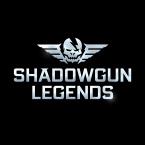Sometimes, the mobile games market can feel like a case of here today, gone tomorrow.
Such is its rapid nature, developers can go from leading the pack to being forgotten in just a few short years.
Two companies who it could be argued are at risk of following this path are Gumi and ZeptoLab.
For Gumi, after enjoying a great period of growth on the back of global RPG hit Brave Frontier, the shutting down of its studios in Canada, Sweden, Germany, Austin and Hong Kong was a pivotal moment.
The times they are a-changin'
ZeptoLab, meanwhile, has never experienced anything like the same level of boom and bust, as it remains a modestly-sized outfit based out of Moscow with one additional office in Barcelona.
What it has been in danger of losing, however, is momentum. Cut the Rope had its day a long time ago, and its position as one of mobile gaming's most recognisable brands has faded somewhat.
Representatives of Gumi and ZeptoLab were both present at the event (and interviews will be live on PocketGamer.biz soon).
Both made it clear that relying on prior success in simply not an option, and both have their own strategies.
For Gumi, this is to focus heavily on mobile games for its native Japan while also investing heavily in VR. Meanwhile, ZeptoLab is looking for midcore games to publish while developing more titles featuring the much-loved Om Nom character.
It's hard to say whether or not this will work for either, but it's telling to see even companies who have tasted massive mobile success now having to adapt and invest in new areas.
















